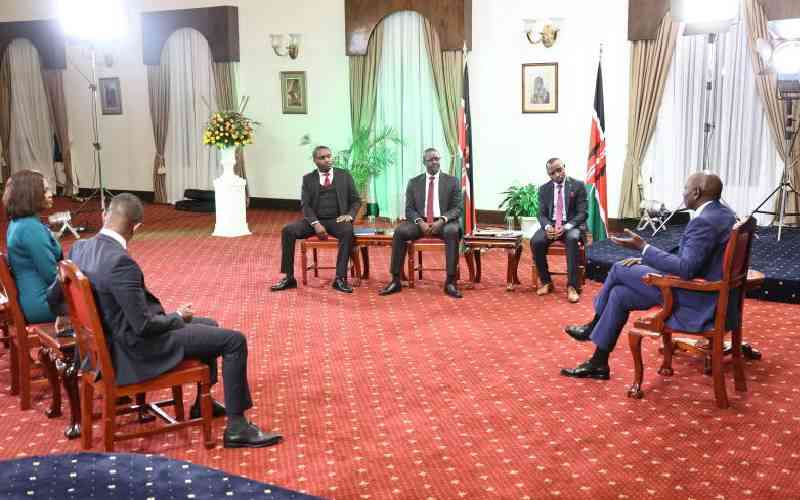
In what appears to be a deliberate plan for a quarterly joint media engagement, President William Ruto offered another lengthy media interview to the nation this past Sunday evening. In many ways, this engagement on the part of the president is strengthening our democratic principles of openness and accountability from the highest office in the land.
Unlike his immediate predecessor who in all fairness appeared completely aloof to the goings on in his administration, President Ruto comes out as a really hands on type of a leader. Reflecting on the sum total of the issues canvassed during the interview, three things are crystal clear: One, there is no doubt that the good, the bad and the ugly that we are witnessing of his administration is either sanctioned directly or is done with the full knowledge of his office; two, there is no unifying government wide economic policy, but rather the country is being managed according to the whims of its supreme leader; and three, the president comes out as a screwed character, whipping emotions when it is convenient while completely ignoring the cries of his subjects on where it pains most.